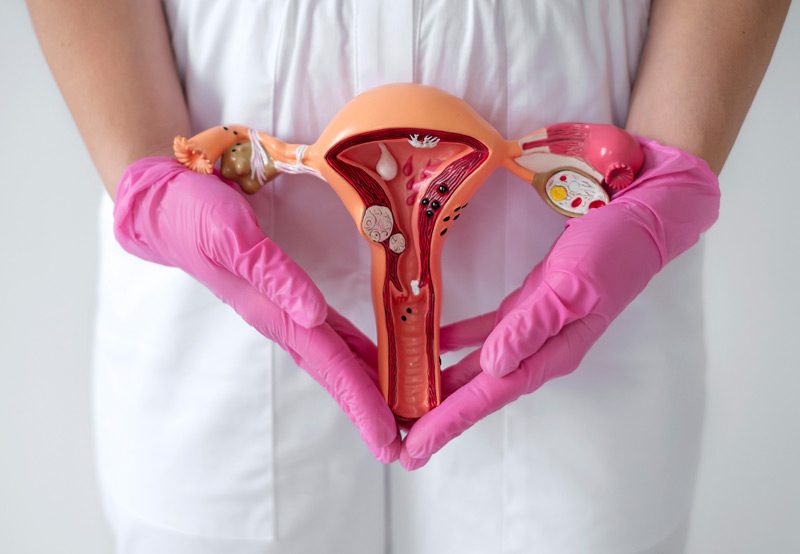

Genitourinary syndrome of menopause (GSM) refers to a group of symptoms related to changes in the lower urinary and genital tract caused by the decline in estrogen during menopause. These symptoms can include vaginal dryness, irritation, urinary urgency, frequent urination, and pelvic pain. Women with GSM may experience discomfort during daily activities, including sexual intercourse, and may also develop urinary tract infections more frequently.
Causes of Genitourinary Syndrome of Menopause
GSM can be caused by:
- Declining Estrogen Levels: The decrease in estrogen during menopause leads to thinning of the vaginal and urinary tract tissues, resulting in dryness and discomfort.
- Decreased Blood Flow: Reduced estrogen can also impair blood flow to the vaginal and urethral tissues, affecting lubrication and sensation.
- Increased Vaginal Atrophy: The thinning of the vaginal walls (vaginal atrophy) occurs as a result of estrogen loss, which can lead to reduced elasticity and dryness.

Diagnosis
A healthcare provider may diagnose GSM through:
- Physical Examination: Evaluating the vaginal tissues for signs of atrophy, dryness, or thinning.
- Urinary Assessment: Assessing symptoms such as urgency, frequency, and urinary tract infections.
Treatment Options
Treatment for GSM may include:
- Hormone Replacement Therapy (HRT): Estrogen replacement therapy, either oral or topical, to restore vaginal moisture, elasticity, and improve urinary symptoms.
- Vaginal Estrogen: Estrogen creams, rings, or tablets applied directly to the vaginal area to relieve dryness, irritation, and urinary symptoms.
- Non-Hormonal Moisturizers and Lubricants: Regularly using products to alleviate dryness and discomfort during sexual activity.
- Laser Treatments: In-office laser treatments can help to improve vaginal function and tissue elasticity.
- Pelvic Floor Physical Therapy: Exercises to strengthen pelvic floor muscles and improve bladder control and sexual function.
- Ospemifene: A selective estrogen receptor modulator (SERM) that can help alleviate vaginal dryness and discomfort during intercourse in women who cannot take estrogen.
- Urinary Tract Infections Management: Antibiotics or other treatments to manage and prevent recurrent urinary tract infections associated with GSM.
Next Steps
If you are experiencing symptoms of GSM, such as vaginal dryness or urinary discomfort, consult with your doctor. Treatment options, including hormone therapy, vaginal estrogen, and lifestyle adjustments, may significantly improve symptoms and restore quality of life. Early intervention can prevent the worsening of symptoms and help manage the changes associated with menopause effectively.
